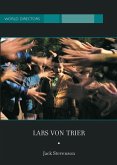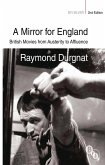When Head-On (Gegen die Wand, 2004) won the Golden Bear at the Berlin International Film Festival, it was hailed as a turning point for German cinema. Not only was this unconventional love story the first German film in eighteen years to win the prestigious award, but the success of writer-director Fatih Akin was also celebrated as the revival of German auteur cinema. Meanwhile Turkey claimed Akin as its own prodigal son and his film a victory for Turkish cinema.
Daniela Berghahn provides a detailed and entertaining account of the film's artistic inspirations, its production history and the debates that surrounded it in the German and Turkish press. Arguing that much of the media discourse on Turkish German identity politics detracted from Akin's remarkable artistic achievement, Berghahn instead situates Head-On in the critical contexts of global art cinema and transnational melodrama. This comparative approach excavates new layers of meaning and offers highly original insights into Akin's landmark film.
Daniela Berghahn provides a detailed and entertaining account of the film's artistic inspirations, its production history and the debates that surrounded it in the German and Turkish press. Arguing that much of the media discourse on Turkish German identity politics detracted from Akin's remarkable artistic achievement, Berghahn instead situates Head-On in the critical contexts of global art cinema and transnational melodrama. This comparative approach excavates new layers of meaning and offers highly original insights into Akin's landmark film.









